Introduction
Can Rats Eat Carrots: The world of culinary limited to humans alone; it extends to some of our smallest and often misunderstood companions – rats. While these rodents are more commonly associated with scavenging through garbage bins than dining at a table, their dietary preferences are surprisingly versatile. One question that frequently arises in the realm of rat care and nutrition is whether rats can eat carrots.
The world of culinary exploration isn’t limited to humans alone; it extends to some of our smallest and often misunderstood companions – rats. These furry creatures, known for their adaptability and resourcefulness, have a remarkable ability to adapt to various environments, including their dietary choices. While rats are more commonly associated with scavenging through garbage bins than dining at a table, their dietary preferences are surprisingly versatile, encompassing a wide range of foods.
One question that frequently arises in the realm of guinea rat care and nutrition is whether rats can eat carrots. Rats, as pets or even as urban wildlife, have an uncanny ability to adapt to the food sources available to them. They are opportunistic omnivores, which means they can consume a variety of foods, both plant-based and animal-based, making their diet highly flexible. Carrots, with their vibrant orange hue and distinct crunch, often find their way into the human diet and, by extension, into the feeding regimen of pet rats.
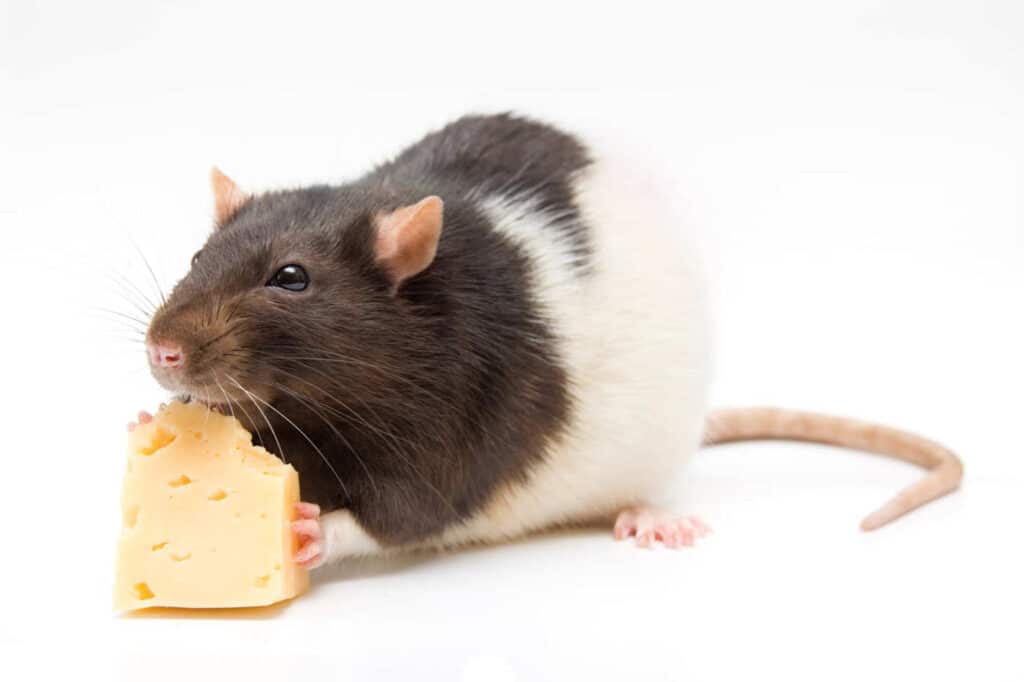
Can you feed rats carrots?
Carrots can be a great treat option for your rat. Rats love experimenting with novel foods, and carrots can be a tasty treat in moderation. Overfeeding can upset your rat’s stomach, leading to diarrhea, so make sure you’re feeding carrots only in moderation.
While rats can enjoy carrots, their diet should be well-rounded. In addition to vegetables, they should have access to high-quality rat pellets designed to meet their nutritional needs. These pellets provide essential vitamins and minerals, ensuring your rat receives a balanced diet.
While carrots offer numerous health benefits, it’s essential to exercise moderation when feeding them to rats. Carrots are naturally sweet due to their sugar content, and excessive consumption can lead to weight gain and potential dental problems in rats. Therefore, it’s best to offer carrots as an occasional treat rather than a daily staple.
Wash Thoroughly: Rinse carrots under running water to remove any dirt or pesticide residue. Organic carrots are an excellent choice if you’re concerned about chemicals.
Cut into Small Pieces: Rats have small mouths, so cut carrots into manageable, bite-sized pieces to prevent choking hazards.
Offer Variety: Rats appreciate variety in their diet. Alongside carrots, provide other fresh vegetables and fruits to ensure a balanced nutritional intake.
What vegetables can rats not eat?
Take extra care not to feed pet rats fruits and vegetables that could be poisonous or cause gastrointestinal distress. Fruits and vegetables to avoid feeding rats include raw sweet potatoes, cabbage, Brussels sprouts and artichokes, although these are fine if cooked; green, unripe bananas and potatoes; rhubarb; avocado.
Raw sweet potatoes contain compounds that can be harmful to rats if consumed in large quantities. Cooking sweet potatoes thoroughly neutralizes these compounds, making them safe for rats to eat.
Raw or undercooked beans, such as kidney beans or navy beans, contain lectins and other substances that can be toxic to rats. Always cook beans thoroughly before offering them.
Onions and garlic, even in small amounts, can be toxic to rats and may cause digestive problems, so it’s best to avoid them altogether.
Potato sprouts and green parts contain solanine, a natural toxin that can be harmful to rats. Ensure that any potatoes given to rats are free from sprouts and green areas.
Rhubarb leaves, in particular, contain oxalates and anthraquinones, which can be toxic to rats. Avoid feeding any part of the rhubarb plant to your rats.
Do rats love carrots?
They have preferences just like humans do. Rats love fruit and vegetables. The best fruits for them include bananas, apples and pears; veggies like carrots, peas, corn and beans are also popular with rats. Bananas are one of their favourite treats!
Just like humans have varied tastes, rats also have individual preferences when it comes to food. Some rats may take an immediate liking to carrots, relishing their crunchy texture and slightly sweet flavor. Others may be more selective, showing less enthusiasm for this particular vegetable.
While rats can indeed enjoy carrots, it’s essential to offer them in moderation. Carrots contain natural sugars that, when consumed excessively, can lead to weight gain and potential dental problems in rats. Therefore, carrots should be considered an occasional treat rather than a daily staple in their diet.
Thorough Washing: Rinse carrots thoroughly under running water to remove any dirt or pesticide residue. Organic carrots are an excellent choice if you’re concerned about chemicals.
Cut into Bite-Sized Pieces: Rats have small mouths, so cut carrots into manageable, bite-sized pieces to prevent choking hazards.
Variety Is Key: Rats appreciate variety in their diet. Alongside carrots, provide other fresh vegetables and fruits to ensure a balanced nutritional intake.
Can rats eat carrot and cucumber?
Brown rice, wholemeal pasta and oats can be offered as extra treats occasionally. Vegetables – broccoli, broccolini, bok choy, capsicum, corn, zucchini, cucumber, herbs, beans, snow peas, peas, carrots, beetroot and celery.
Hydration: Cucumbers have an exceptionally high water content, making them an excellent choice to help keep your rat well-hydrated.
Low in Calories: Cucumbers are low in calories, making them a healthy option for rats that are prone to weight gain.
Vitamins and Minerals: While not as nutritionally dense as some other vegetables, cucumbers do provide small amounts of vitamins and minerals that can contribute to a rat’s overall health.
Thorough Washing: Rinse carrots and cucumbers thoroughly under running water to remove any dirt or pesticide residue. Organic options are preferable if you’re concerned about chemicals.
Cut into Bite-Sized Pieces: Rats have small mouths, so cut carrots and cucumbers into manageable, bite-sized pieces to prevent choking hazards.
Variety Is Key: Rats appreciate variety in their diet. Alongside carrots and cucumbers, provide other fresh vegetables and fruits to ensure a balanced nutritional intake.
What is the best vegetable for rats?
Basic Rat feeding guide
Some examples of suitable fruit and vegetables are: apples, pears, banana, melons, stone fruits, citrus fruits, broccoli, cabbage (not red cabbage), endive, carrots, Bok choy/other Asian greens, celery, parsley, berries, fresh corn (small amount only) and peas.
Wash Thoroughly: Rinse vegetables under running water to remove any dirt or pesticide residue. Organic options are preferable if you’re concerned about chemicals.
Cut into Bite-Sized Pieces: Rats have small mouths, so cut vegetables into manageable, bite-sized pieces to prevent choking hazards.
Variety Is Key: Rats appreciate variety in their diet. Rotate the types of vegetables you offer to ensure a broad spectrum of nutrients.
Moderation: While these vegetables are excellent choices for rats, moderation is essential. Overfeeding any particular vegetable can lead to nutritional imbalances or digestive issues.
The best vegetables for rats are those that provide a well-rounded mix of vitamins, minerals, and fiber while being enjoyed by your furry companions.
By offering a diverse range of fresh foods and carefully managing portion sizes, you can ensure that your rats receive the nutritional excellence they need to lead healthy and happy lives. T
he relationship between rats and these vegetables exemplifies the fascinating world of rat care, where dietary choices contribute significantly to their overall well-being.
What food are rats afraid of?
In addition to plants, rats also dislike certain spices like peppermint, cloves, cayenne pepper, and chili.
Spicy Foods: Rats have a strong sense of smell and taste, and they are generally averse to spicy or highly pungent foods. Spices like chili peppers and hot sauces can be deterrents for rats due to their intense flavors and potential irritation to their sensitive senses.
Bitter Foods: Rats, like many animals, tend to avoid bitter-tasting foods. This aversion is likely an evolutionary adaptation to help them steer clear of potentially toxic plants in the wild.
Strong Odors: Rats are sensitive to strong odors, especially those associated with spoiled or rotting foods. They often avoid foods that emit foul or overpowering smells.
Unfamiliar Foods: Rats may exhibit caution or reluctance when presented with foods they have never encountered before. This wariness is a survival instinct that helps them avoid potential dangers in their environment.
What rats hate most?
You can repel rats from your home and garden with scents they dislike, such as clover, garlic, onion, hot peppers containing capsaicin, house ammonia, used coffee grounds, peppermint, eucalyptus, predator (cat) scent, white vinegar, and citronella oil.
Rats have a highly developed sense of smell, and they find strong, pungent odors aversive. This includes the smell of certain cleaning products, peppermint oil, and ammonia. Using these scents strategically can deter rats from specific areas.
Rats are averse to spicy and pungent flavors. Sprinkling cayenne pepper or hot sauce in areas where rats are not welcome can discourage them from staying.
Rats, like many animals, tend to avoid bitter-tasting substances. This aversion may be an evolutionary adaptation to prevent them from ingesting potentially toxic plants.
Rats have sensitive hearing, and loud or sudden noises can startle and deter them. Ultrasonic pest repellent devices emit high-frequency sounds that are unpleasant for rats and can help keep them away.
Rats are nocturnal creatures and prefer darkness. Bright lights in areas where rats are active can make them uncomfortable and less likely to stay.
What do rats eat to survive?
In the wild, rats will eat things like fruit, plants, and seeds, and are more likely to be vegetarians. However, city rats like to eat garbage and meat. They will consume pet food and any human food that they come across.
Seeds and Grains: Rats are fond of seeds and grains, such as those found in grasses, plants, and bird feeders.
Fruits and Vegetables: They feed on a variety of fruits and vegetables, including berries, nuts, and roots.
Insects: Rats are opportunistic hunters and will eat insects and small invertebrates when the opportunity arises.
Nuts: Nuts, if available, are a valuable source of fats and proteins in their diet.
Bird Eggs: Rats are known to raid bird nests for eggs when they can access them.
Scavenging: Rats are skilled scavengers and will consume human food waste, discarded items, and carrion.
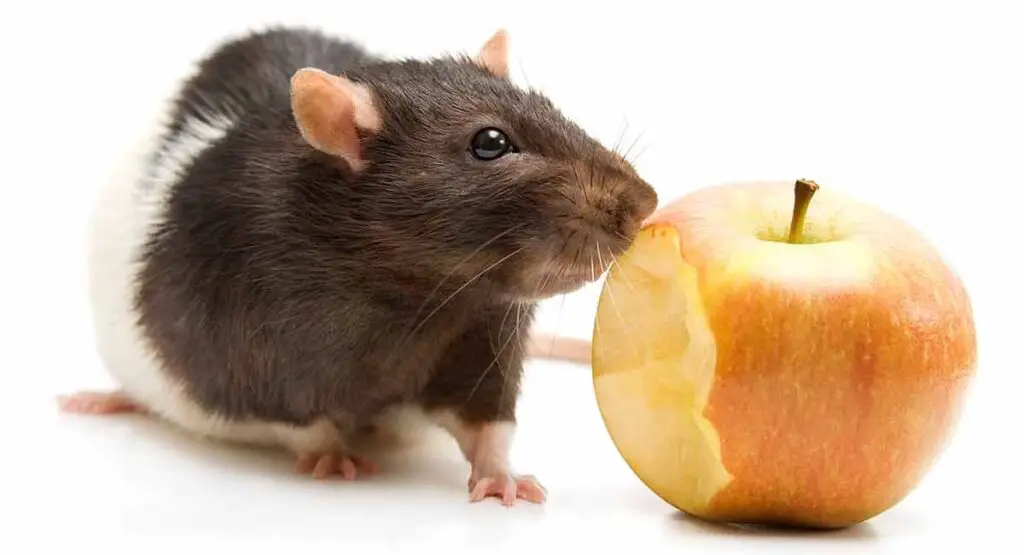
Conclusion
However, as with any aspect of pet care, balance is key. While carrots offer numerous benefits, excessive consumption can lead to potential issues due to their naturally occurring sugars. Rats should enjoy carrots as part of a varied diet that includes a mix of vegetables, fruits, and high-quality rat pellets to ensure they receive all the nutrients they need.
The relationship between rats and eat carrots can be a wholesome and enjoyable one, enriching the diet of these intelligent and adaptable animals. By following best practices in feeding and maintaining a balanced diet, you can ensure that your rat companions thrive and relish their occasional carrot treat. So, the next time you offer a carrot to your pet rat, you can do so with confidence, knowing that you’re providing a nutritious and tasty addition to their menu.
Carrots offer an array of essential nutrients, including vitamin A, fiber, and antioxidants, making them a valuable addition to a rat’s dietary repertoire. However, also highlights the importance of balance and moderation in rat nutrition. Just as rats have adapted to various habitats, they require a balanced diet that accommodates their nutritional needs.

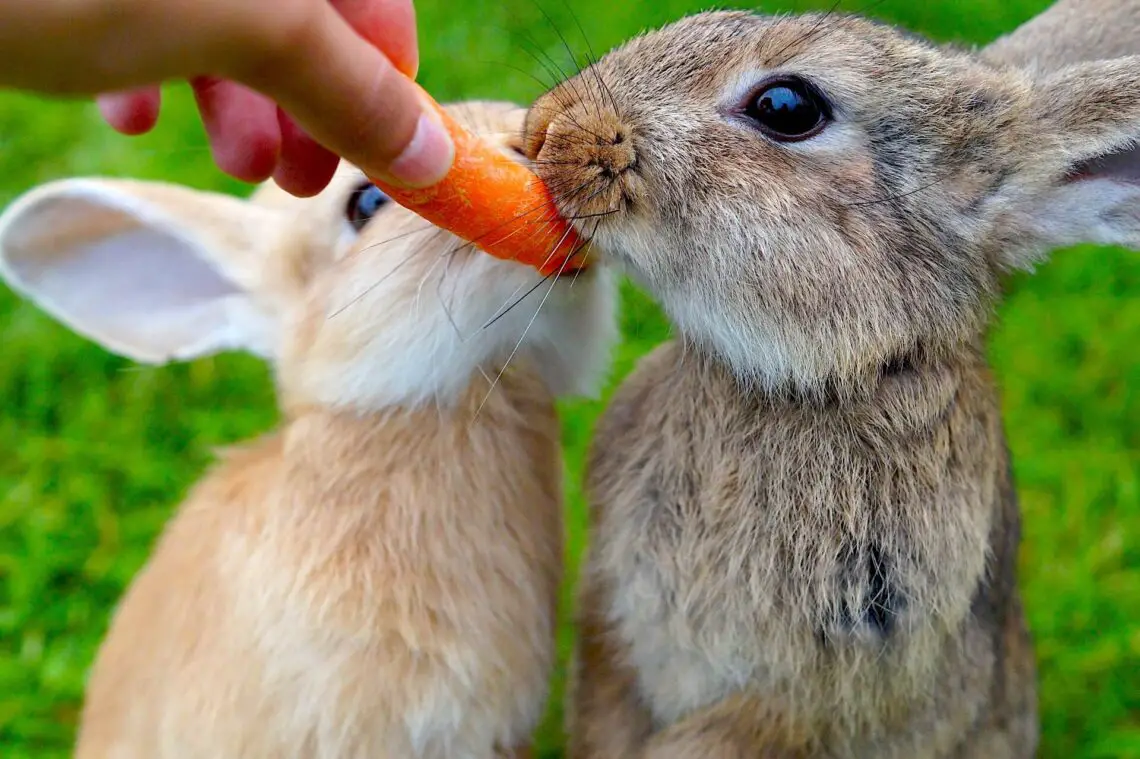
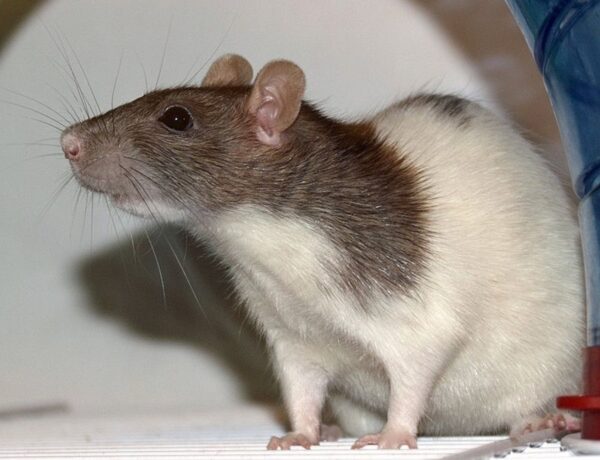
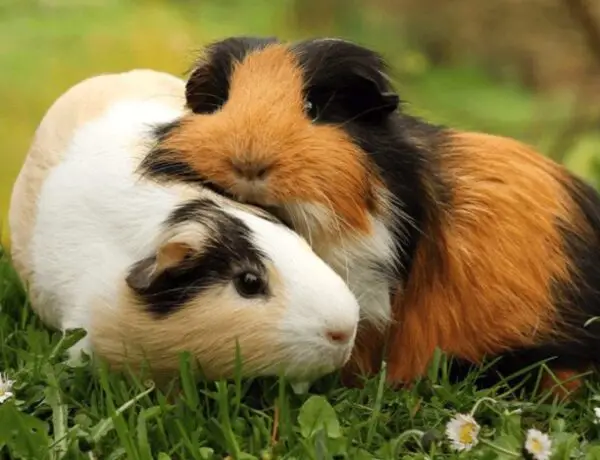
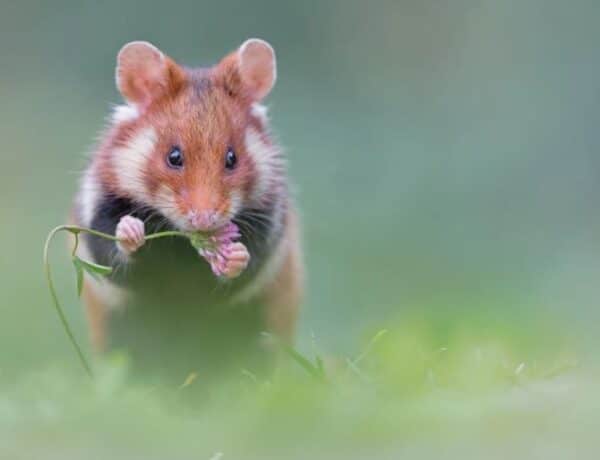
No Comments